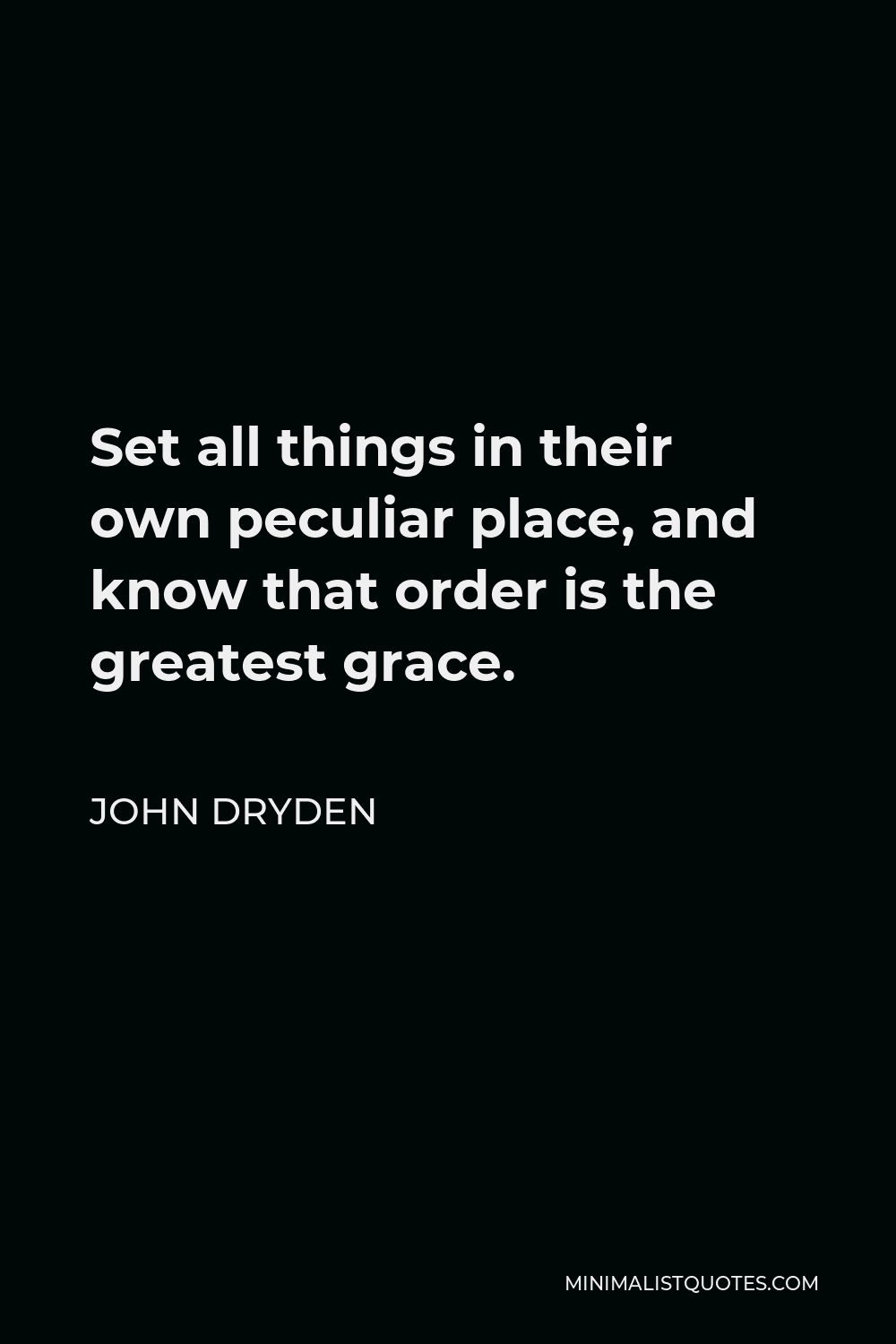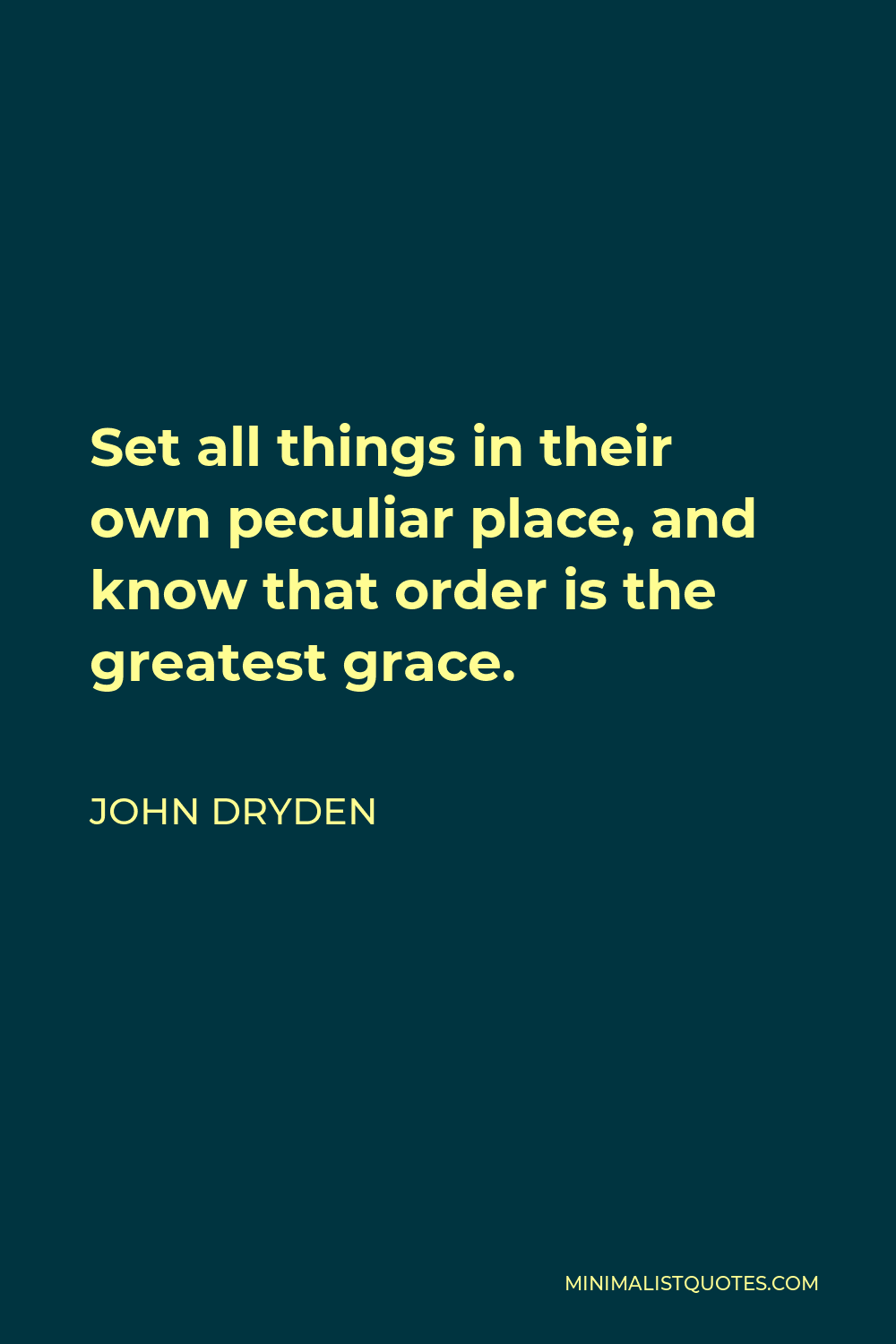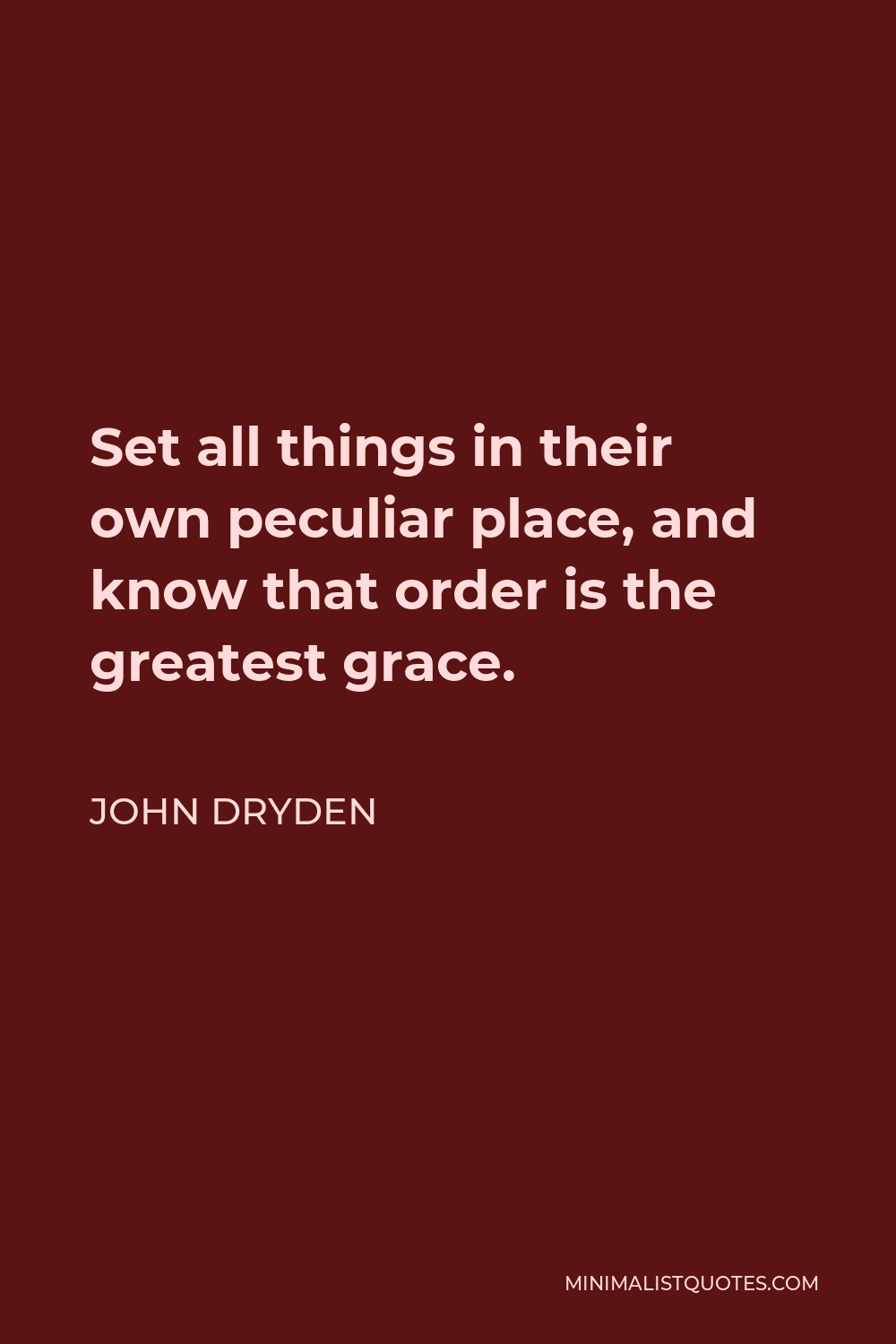Death ends our woes, and the kind grave shuts up the mournful scene.
JOHN DRYDENSet all things in their own peculiar place, and know that order is the greatest grace.
More John Dryden Quotes
-





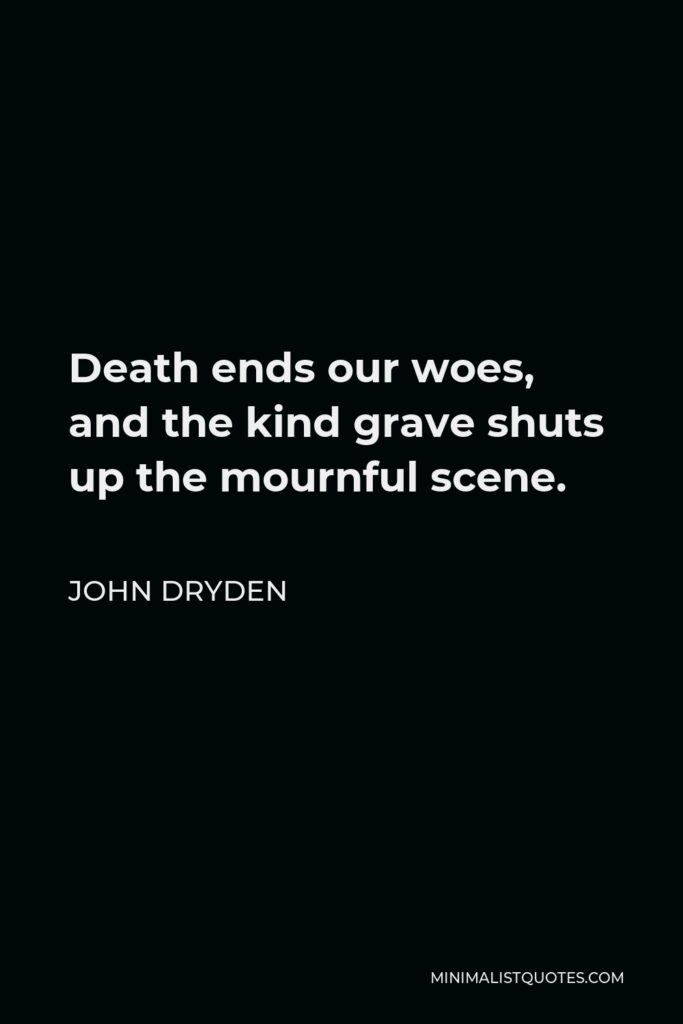

-





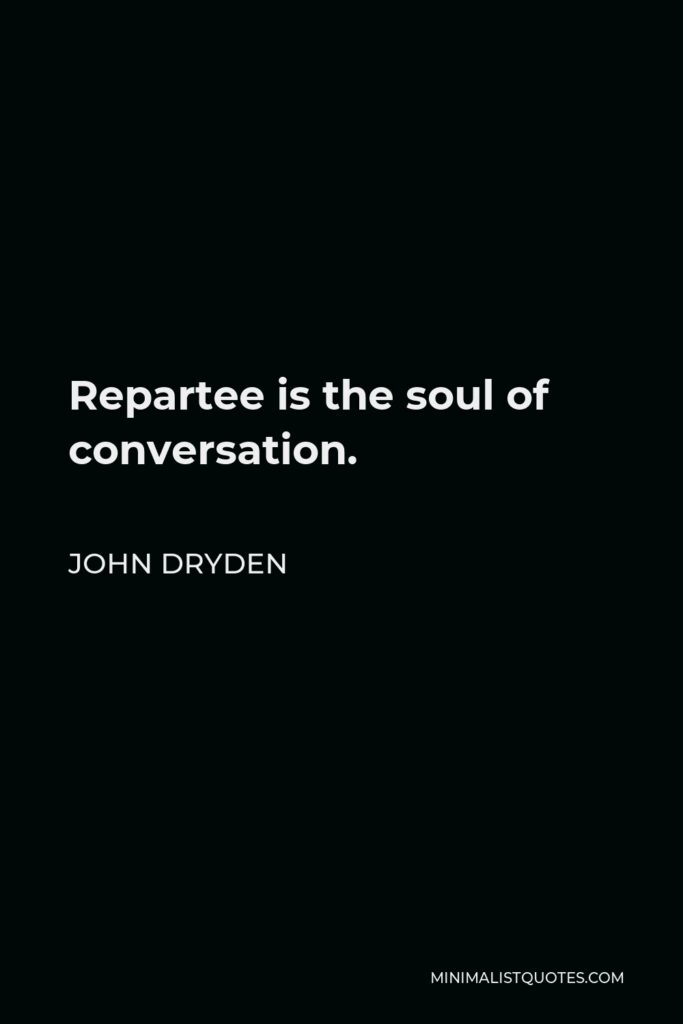

Repartee is the soul of conversation.
JOHN DRYDEN -





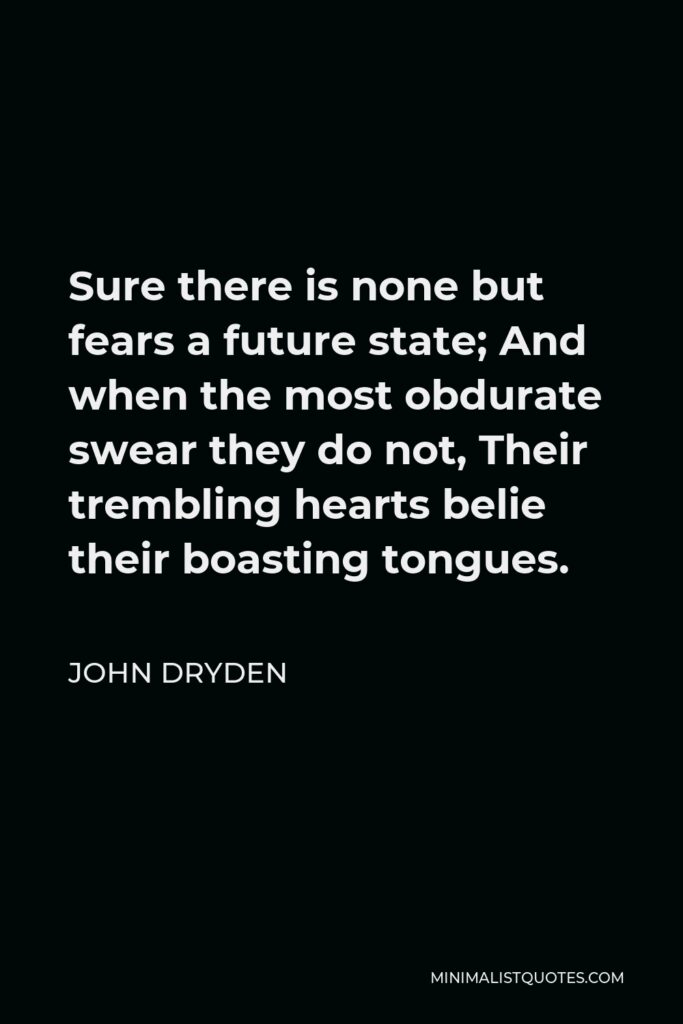

Sure there is none but fears a future state; And when the most obdurate swear they do not, Their trembling hearts belie their boasting tongues.
JOHN DRYDEN -





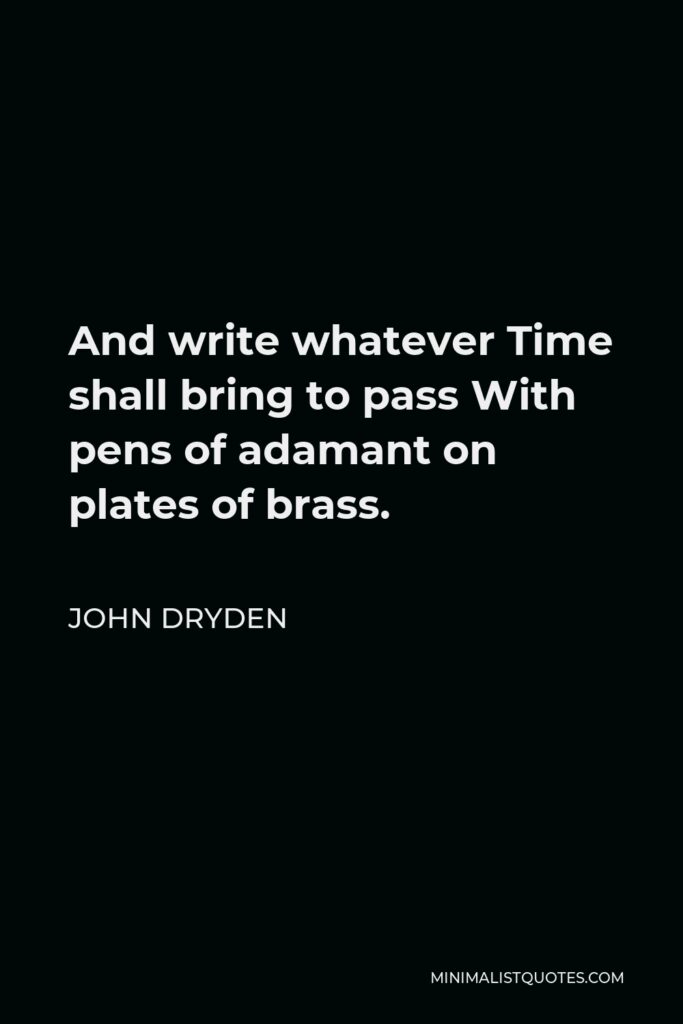

And write whatever Time shall bring to pass With pens of adamant on plates of brass.
JOHN DRYDEN -







The secret pleasure of a generous act Is the great mind’s great bribe.
JOHN DRYDEN -







A narrow mind begets obstinacy; we do not easily believe what we cannot see.
JOHN DRYDEN -







When I consider life, ’tis all a cheat; Yet, fooled with hope, men favour the deceit; Trust on, and think tomorrow will repay. Tomorrow’s falser than the former day.
JOHN DRYDEN -





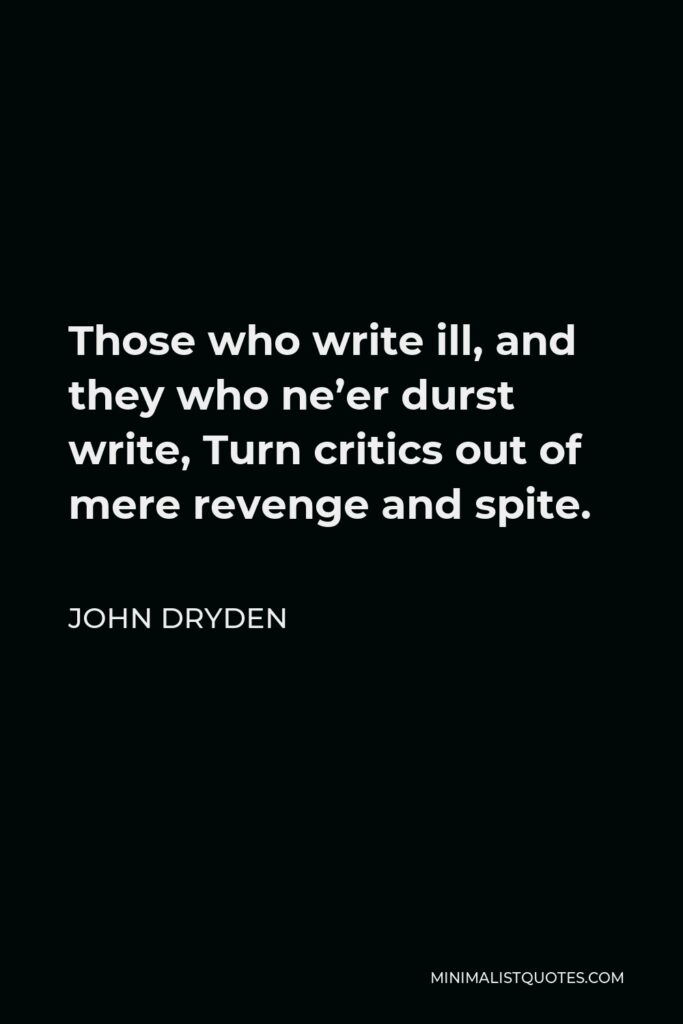

Those who write ill, and they who ne’er durst write, Turn critics out of mere revenge and spite.
JOHN DRYDEN -





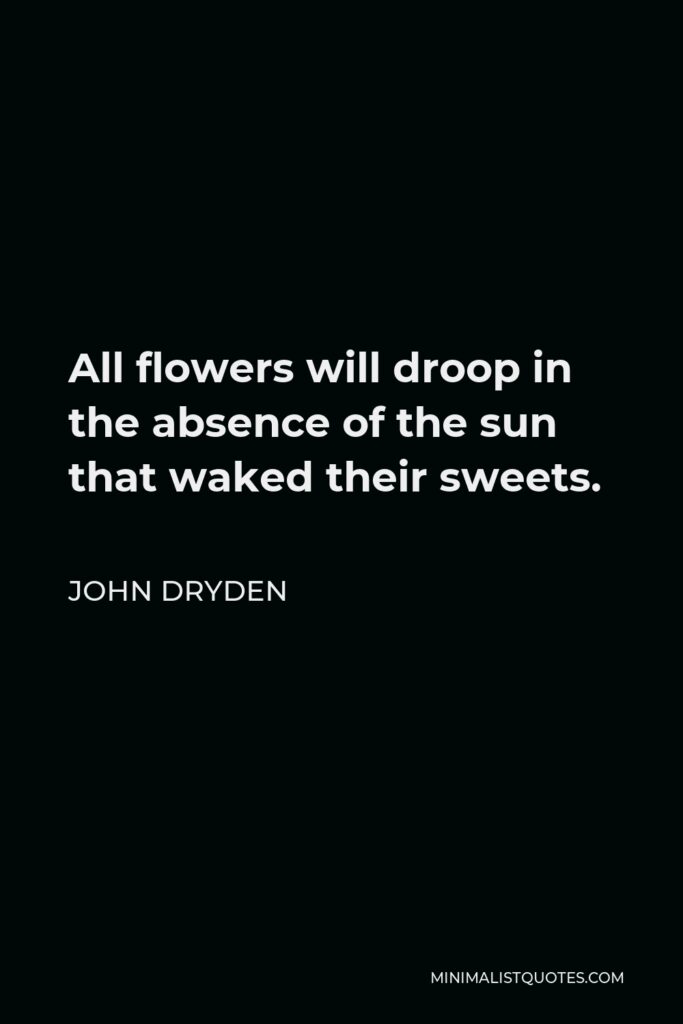

All flowers will droop in the absence of the sun that waked their sweets.
JOHN DRYDEN -





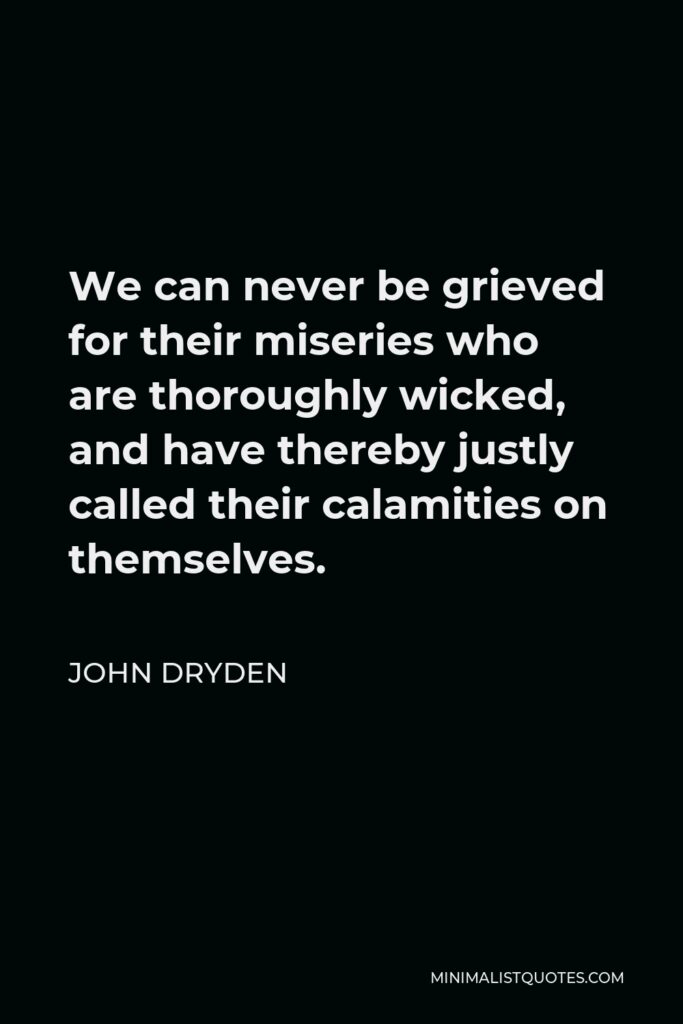

We can never be grieved for their miseries who are thoroughly wicked, and have thereby justly called their calamities on themselves.
JOHN DRYDEN -







Love works a different way in different minds, the fool it enlightens and the wise it blinds.
JOHN DRYDEN -





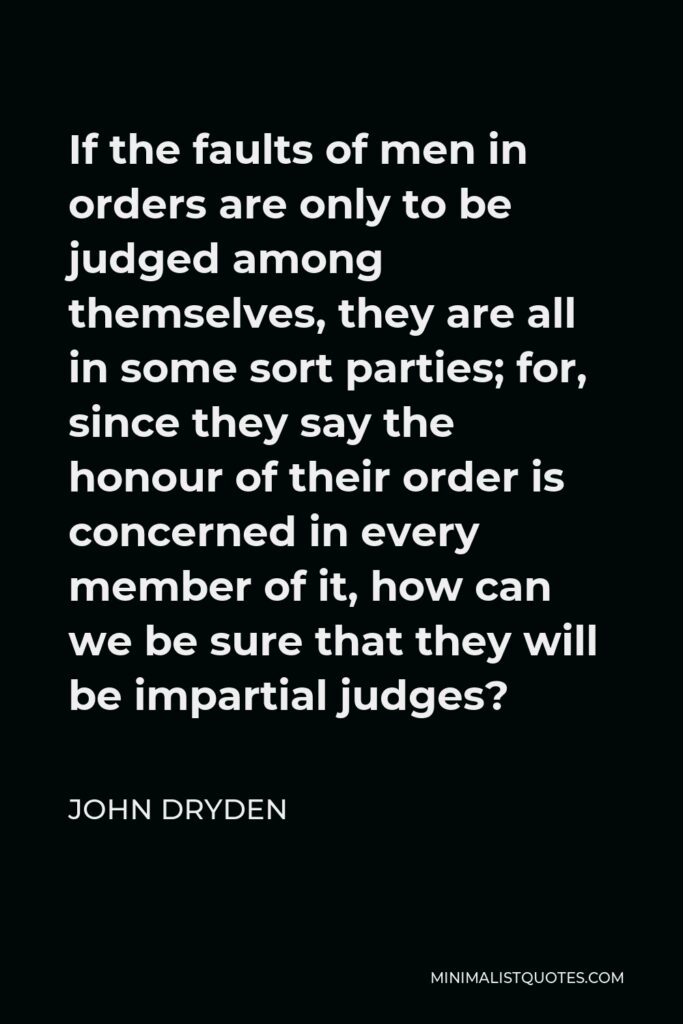

If the faults of men in orders are only to be judged among themselves, they are all in some sort parties; for, since they say the honour of their order is concerned in every member of it, how can we be sure that they will be impartial judges?
JOHN DRYDEN -





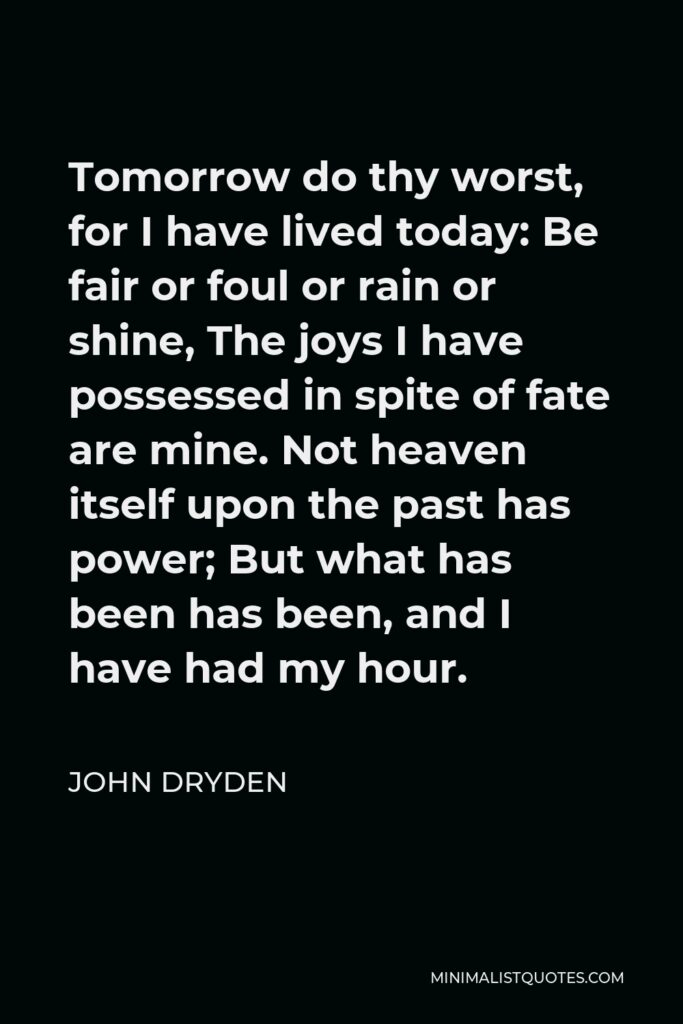

Tomorrow do thy worst, for I have lived today: Be fair or foul or rain or shine, The joys I have possessed in spite of fate are mine. Not heaven itself upon the past has power; But what has been has been, and I have had my hour.
JOHN DRYDEN -







For they can conquer who believe they can.
JOHN DRYDEN -





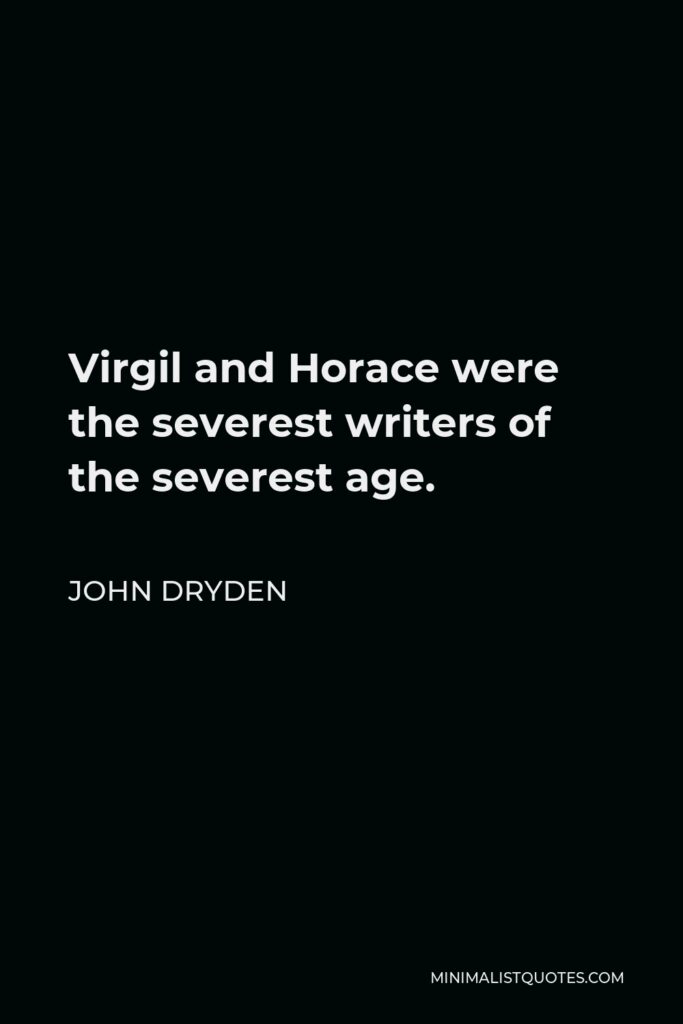

Virgil and Horace were the severest writers of the severest age.
JOHN DRYDEN -





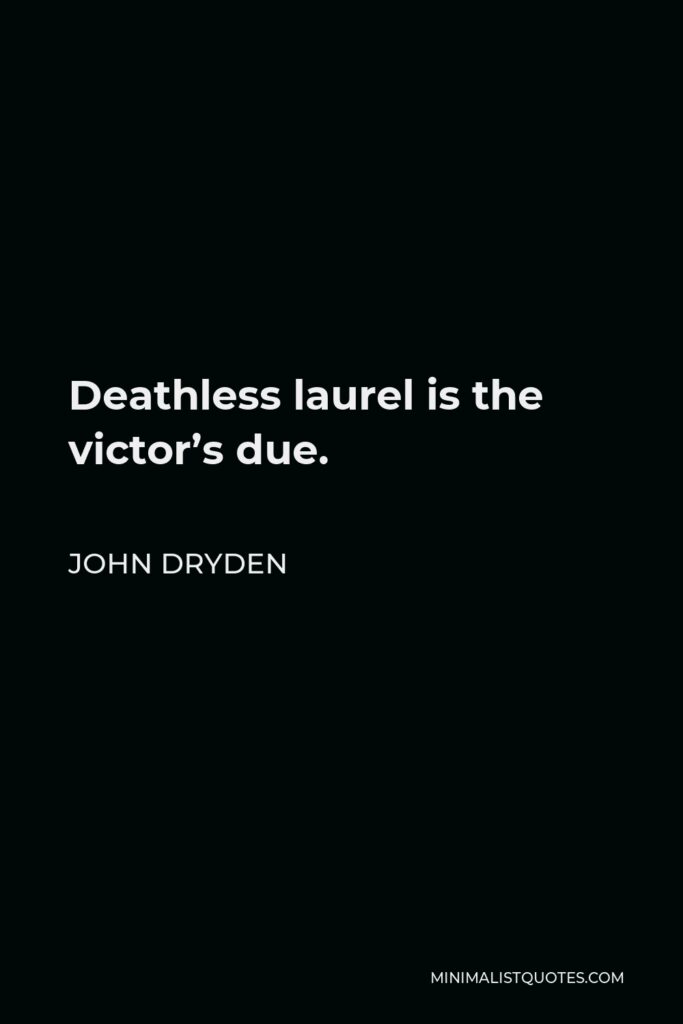

Deathless laurel is the victor’s due.
JOHN DRYDEN
